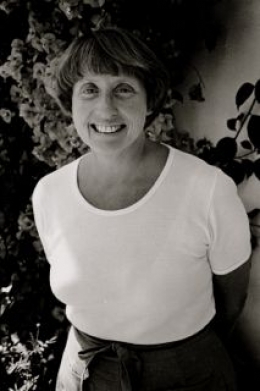 Helene Moglen, 1978
Helene Moglen, 1978
Interviewed and Edited by Irene Reti
2013
147 pages
For the complete text [PDF] of Helene Moglen and the Vicissitudes of a Feminist Administrator (escholarship version). Includes complete audio (streaming or download) for the oral history. Note: Due to editing by the narrator and the Project, there may be minor differences between the audio recording and the transcript. Please quote from the transcript as the record and not the audio. Audio will be found under "Supporting Material."
Helene Moglen was hired for the position of dean of humanities and professor of literature at the University of California, Santa Cruz in the fall of 1978. She became the first female dean in the University of California system. A natural leader with confidence and stamina, Helene Moglen dedicated herself to multiple arenas of institution building at UC Santa Cruz. She served as provost of Kresge College from 1978 to 1983, transforming and revitalizing that college into a vibrant intellectual community, which became a home for several notable academic departments, including the dynamic and expanding American studies program and the prestigious history of consciousness program. She led the division of humanities during a period of reorganization and several controversial tenure battles, and reorganized and built what was then a fledgling student-run women’s studies program into what is now a thriving and nationally prominent feminist studies department, serving as chair from 1984 to 1989.
During her career, she also founded and directed two centers for feminist research, the Feminist Research Focused Research Activity (1984-1989) and the Institute for Advanced Feminist Research (2003-2006). In 1985, Moglen lobbied then-Chancellor Robert Sinsheimer to be able to use the beautiful and historic Cardiff House for a brand-new UCSC Women’s Center, which she founded and helped build into a visionary institution that bridged the campus and downtown communities. Alongside these administrative accomplishments, Moglen became a well-known feminist literary scholar.

 Santa Cruz, CA
Santa Cruz, CA



